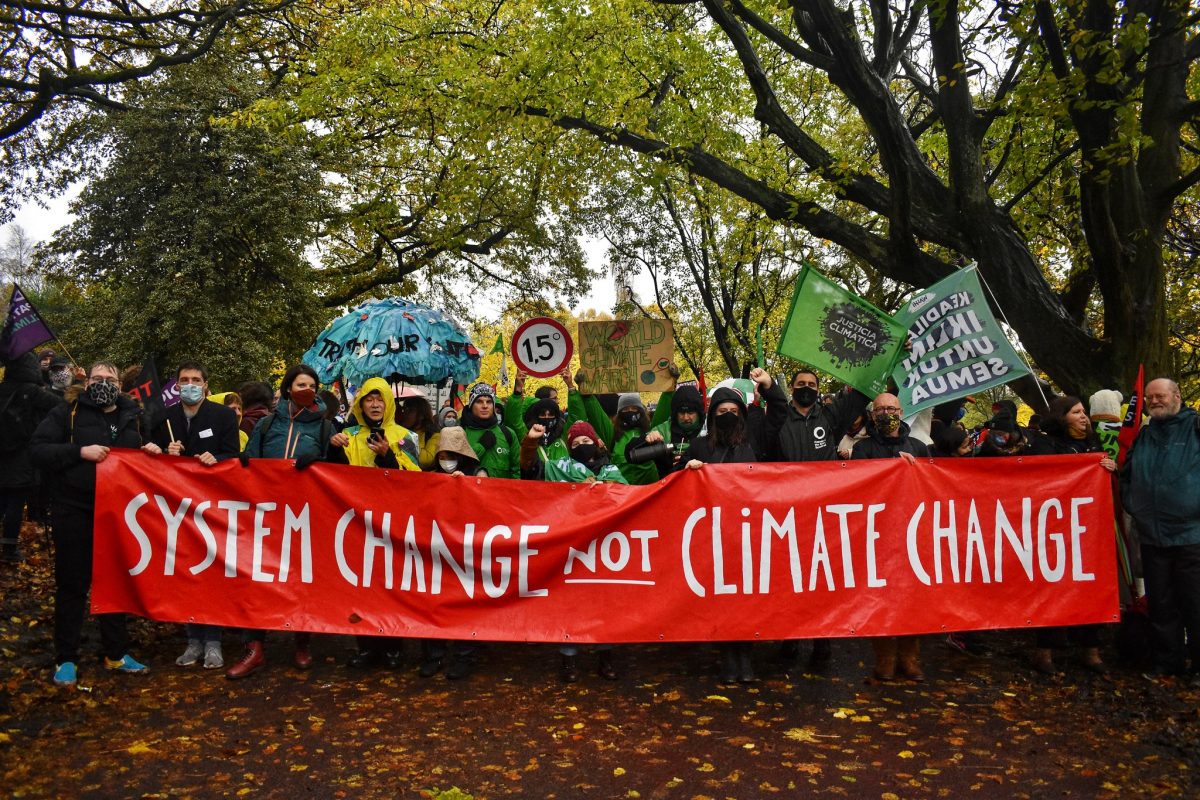
40% climate cuts by 2020 are “practical and affordable” for Europe
It is practical for the EU to follow Scotland’s lead and reach a 40% cut in climate changing emissions by 2020, for less than £2 per citizen per day, a new study shows.
One week ahead of crucial climate change talks in Copenhagen, a new study released today (December 1, 2009) demonstrates for the first time that Europe can cut domestic emissions by 40% in 2020, and by 90% in 2050, compared to 1990 levels.
The study, ‘Europe’s Share of the Climate Challenge: Domestic Actions and International Obligations to Protect the Planet’ is published by Stockholm Environment Institute in partnership with Friends of the Earth Europe.
Duncan McLaren, Friends of the Earth Scotland Chief Executive said: “This study shows that it is practical and affordable for Europe to follow in the footsteps of Scotland’s new climate law, and deliver a 40% cut by 2020. The EU can deliver its fair share of necessary global emission cuts without relying on unfair carbon trading, or resorting to risky options like nuclear power.
“We do, however, need a bold shift in policy and determination from European politicians, and we need it now. The EU can make these cuts in ways which not only improve the quality of life for Europeans, but also ensure the rights of poorer parts of the world to develop sustainably.
“The total cost of implementing the recommendations in the report is affordable, and much smaller than the financial risks to the global economy of doing too little to halt climate change.”
“The findings clearly justify Scotland’s determination to reduce emissions by more than 40% by 2020: with a programme like this in place, European policies would be contributing more to cuts in Scotland than the Scottish Government can currently count on. And this programme does not include any reductions achieved from carbon sequestration, which Scottish Ministers believe can begin to deliver significant emissions savings by 2020.”
Using detailed modeling, the study describes a comprehensive pathway for Europe to achieve 40% emissions cuts through a combination of radical improvements in energy efficiency, the accelerated phase-out of fossil fuels, a dramatic shift towards renewable energies, and lifestyle changes.
Lifestyle changes envisaged by the study include a shift to public transport with only 43% of trips being made by car in 2050 compared to 75% in 2005. Such changes could make the carbon footprint of the average European 8 times smaller in 2050 than today.
The report estimates the costs of the scenario. It calculates that between 2010 and 2020 mitigation costs in Europe would likely be about 2 percent of the EU’s discounted cumulative GDP of £100trillion, or £2 per person per day, which is a value consistent with other mitigation studies.
The study also shows that aggressive actions to cut emissions at home will not be enough alone to keep the planet safe from dangerous climate change. It argues that the EU and others with the capacity and responsibility, must support the developing world’s climate challenge. The EU’s fair share of finances for the developing world for both mitigating and adapting to climate change amounts to between £135billion and £400billion per year by 2020 – another 1% to 3% of the EU’s GDP, or less than £3 per day per person according to the study.
McLaren concluded: “Aggressive actions to cut emissions at home coupled with adequate finances for developing countries are the two-fold obligation which Europe must fulfill to fight climate change in a fair and just way”.
The study shows that with these actions greater equity can also be achieved within Europe since changes in patterns of economic growth in different nations will close the gap between the richest and poorest countries.
Dr Charles Heaps of Stockholm Environment Institute, lead author of the report and a senior scientist in SEI’s climate and energy program, said: “Our analysis shows that deep cuts in emissions can be achieved in Europe at reasonable cost between now and 2050, even with rather conservative assumptions about technological improvement.
“The scale and speed of changes required may seem daunting, and indeed it will require a mobilisation of Europe’s economies, but the potential costs of inaction are so large that doing nothing presents a far more implausible and dangerous future pathway for Europe.”
For a report factsheet, media briefing, or media enquiries, please contact:
Per Fischer, Press Office, Friends of the Earth Scotland
T: 0131 243 2719
Notes to editors
The full report ‘Europe’s Share of the Climate Challenge: Domestic Actions and International Obligations to Protect the Planet’ is available at: www.sei-international.org/climateshareeurope
The Stockholm Environment Institute is an independent, international research institute working on environment and development issues. The institute’s goal is to bridge science and policy on sustainability.
Friends of the Earth Scotland exists to help people in Scotland look after the planet for everyone’s future. We think globally and act locally in Scotland, delivering solutions to climate change by enabling and empowering people to take both individual and collective action. We offer help to people with the big things in life – helping to sustain a healthy society and environment. We believe that all of our children’s futures will be better because of what we do. www.foe-scotland.org.uk
